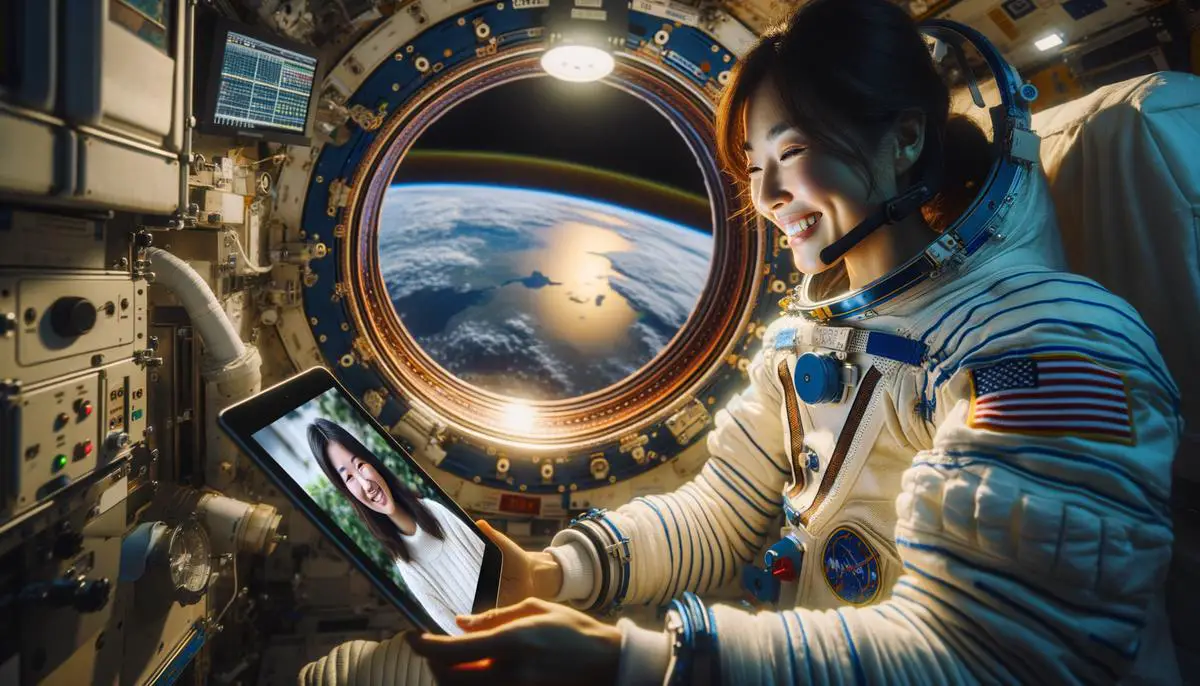Psychological Challenges in Space
Astronauts face unique mental health challenges during space missions. Isolation, confined quarters, and disrupted circadian rhythms are significant hurdles. The vast distance from Earth intensifies feelings of loneliness and homesickness. Video calls with loved ones provide brief relief, but connection issues can exacerbate emotional strain.
Sleep patterns are disrupted due to frequent sunrises and sunsets during orbit, leading to sleep deprivation. Noise from equipment further complicates restful sleep, often necessitating the use of sleep aids.
Living in close quarters with a small group for extended periods can strain interpersonal relationships. Dr. Catherine Coleman's experiences on the ISS highlighted the importance of prioritizing mission objectives over personal feelings.
As missions extend further into space, particularly to Mars, these challenges intensify. The psychological impact of distance and communication delays becomes more pronounced.
Innovative Solutions
- Virtual reality technology for visual escapes and simulated visits with loved ones
- Research into hibernation or torpor-like states to ease long-duration travel monotony
- AI companions for additional emotional support, complementing human interaction
Addressing these psychological challenges is crucial for future space exploration and potential colonization. Lessons learned from ISS missions are informing mental health strategies for future endeavors.
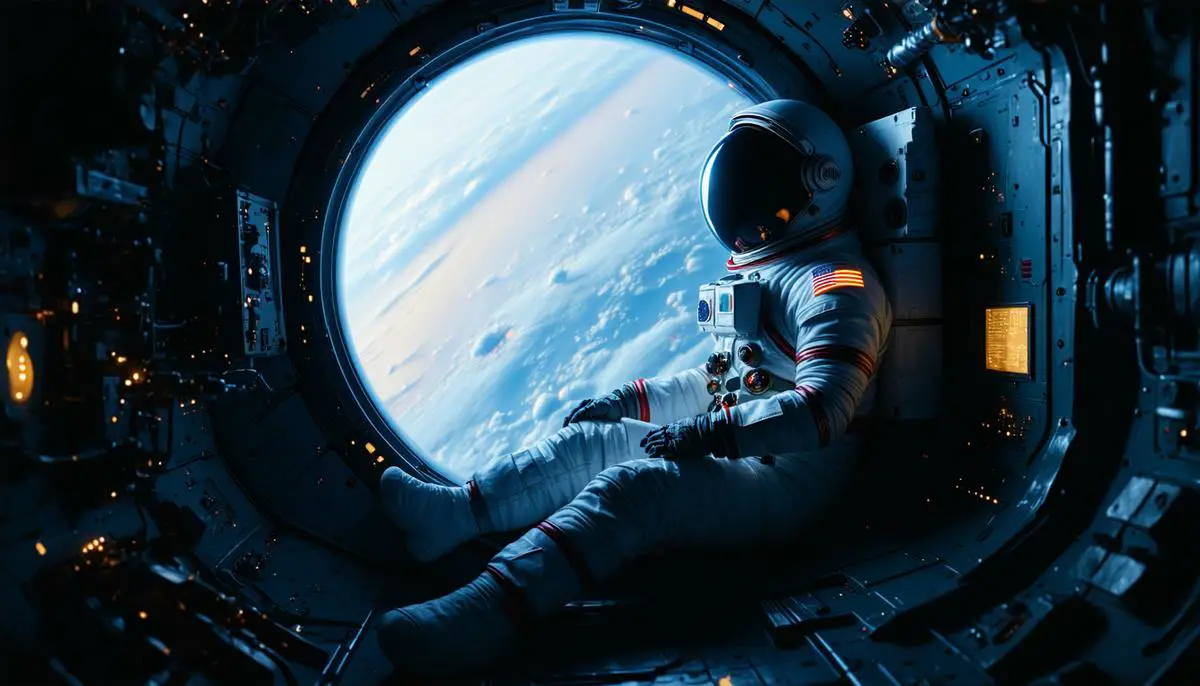
Coping Mechanisms and Support Systems
Team cohesion is vital for astronauts in the confined environment of spacecraft. Space agencies rigorously train crews to foster trust, respect, and camaraderie before missions begin.
Regular communication with family and friends on Earth provides emotional support, helping to mitigate homesickness. Space agencies have invested in advanced communication systems to facilitate these connections.
Psychological support from mission control is crucial. A dedicated team monitors astronauts' mental health and offers personalized strategies to manage stress, anxiety, and depression.
Pre- and post-mission psychological training and debriefing are emphasized to prepare astronauts for the emotional challenges of space travel and readjustment to life on Earth.
As missions to Mars and beyond are planned, these support systems and mental health strategies will become increasingly important in ensuring astronauts' well-being during extended periods in space.
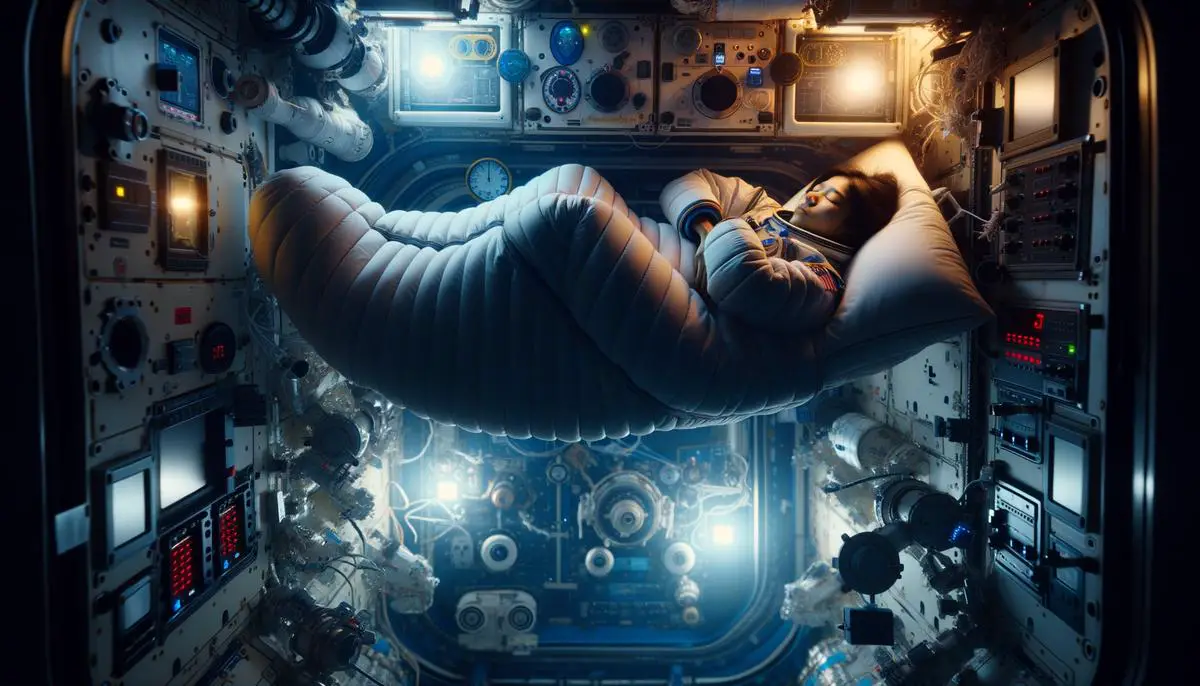
Technological Interventions for Mental Health
Virtual reality (VR) and artificial intelligence (AI) are emerging as key tools for supporting astronaut mental health during extended space missions.
VR offers a form of sensory escape, allowing astronauts to experience simulated environments ranging from natural landscapes to urban settings. These virtual experiences provide psychological relief from the monotony of spacecraft interiors and can be customized to individual preferences.
AI companions are being developed to provide supplemental interaction and support. These systems are designed to recognize emotional cues and offer personalized responses, potentially alleviating feelings of loneliness during periods of isolation.
As AI technology advances, its role may expand to include:
- Guided meditations
- Cognitive behavioral therapy exercises
- Other mental health interventions tailored to the unique stressors of space travel
These technological interventions complement traditional support systems, providing astronauts with additional tools to manage their mental health independently during long-duration missions.
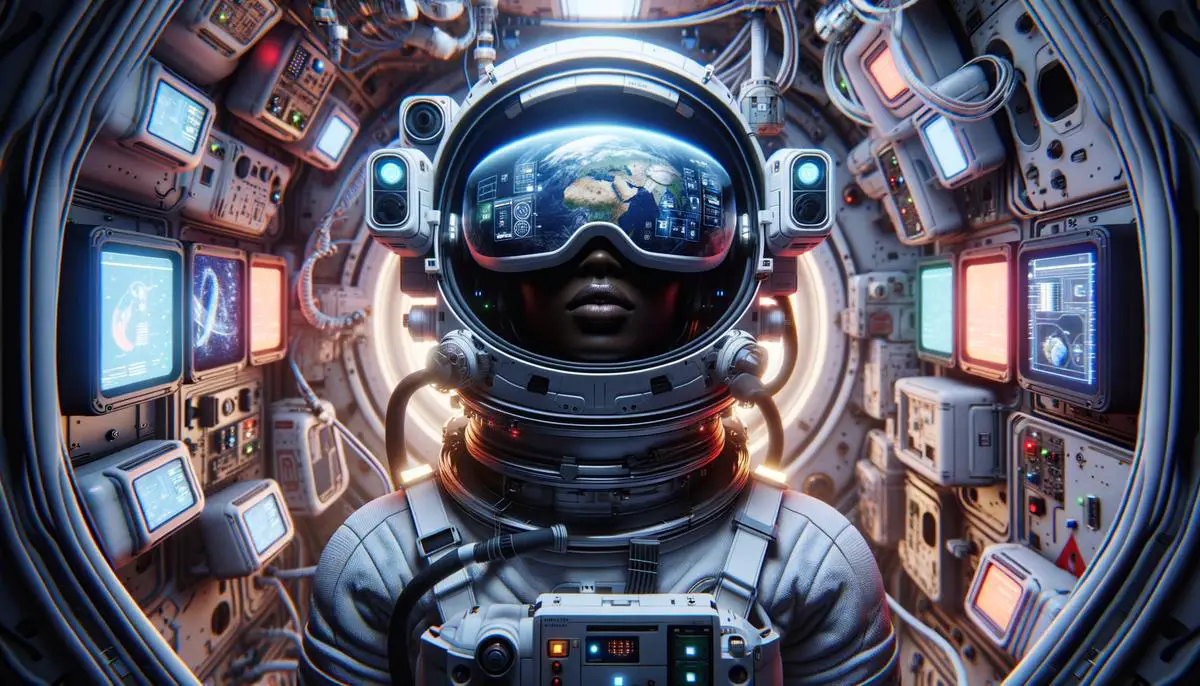
Hibernation and Torpor Research
Research into inducing hibernation or torpor-like states in astronauts is gaining attention as a potential method to mitigate the psychological and physical challenges of extended space missions.
The Studying Torpor in Animals for Space-health in Humans (STASH) experiment is investigating how hibernation could benefit human space exploration. By studying hibernating animals, scientists aim to identify bioactive molecules that could trigger similar states in humans.
Potential benefits of induced torpor:
- Reduced resource consumption
- Simplified life support systems
- Enhanced crew health
- Alleviated psychological impact of confinement and isolation during long journeys
However, significant scientific and technical challenges remain. Researchers must address concerns about muscle and bone preservation and ensure the safety and efficacy of inducing torpor in a microgravity environment.
This innovative area of study has the potential to redefine approaches to deep space travel, potentially enabling safer and more efficient long-duration missions.
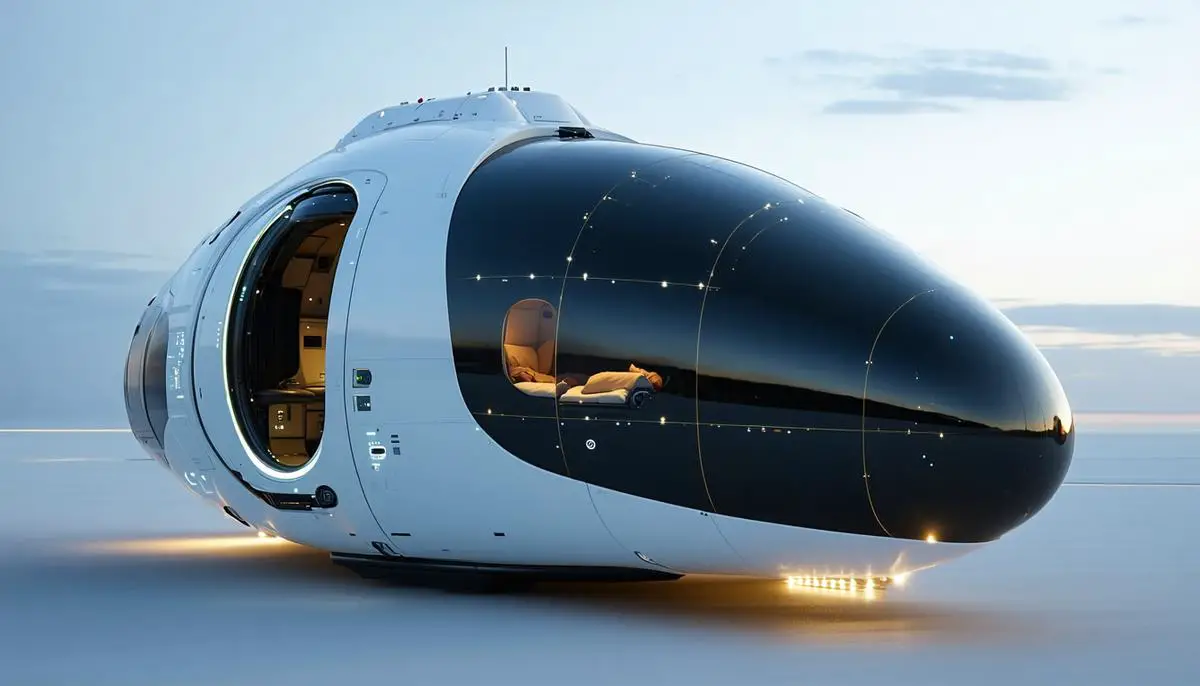
Lessons from the International Space Station
The International Space Station (ISS) has provided valuable insights into maintaining mental health during space missions. Key findings include:
- The importance of maintaining circadian rhythms: Studies like the Circadian Light experiment have shown that exposure to lighting patterns mimicking Earth's natural light cycle can improve sleep quality and reduce stress.
- Psychological benefits of Earth observation: Taking photos of Earth has been found to provide mental health benefits, helping astronauts maintain a sense of connection to home.
- Brain adaptations in space: NeuroMapping investigations have revealed that while spaceflight alters brain connectivity, critical cognitive functions remain largely unaffected.
These lessons are informing preparations for future missions, particularly to Mars. Strategies include:
- Designing lighting systems to regulate circadian rhythms
- Incorporating Earth simulations or real-time communications
- Refining training and support systems to maintain cognitive function during prolonged missions
The knowledge gained from ISS research provides a foundation for developing evidence-based strategies to support astronaut mental well-being on future long-duration space missions.
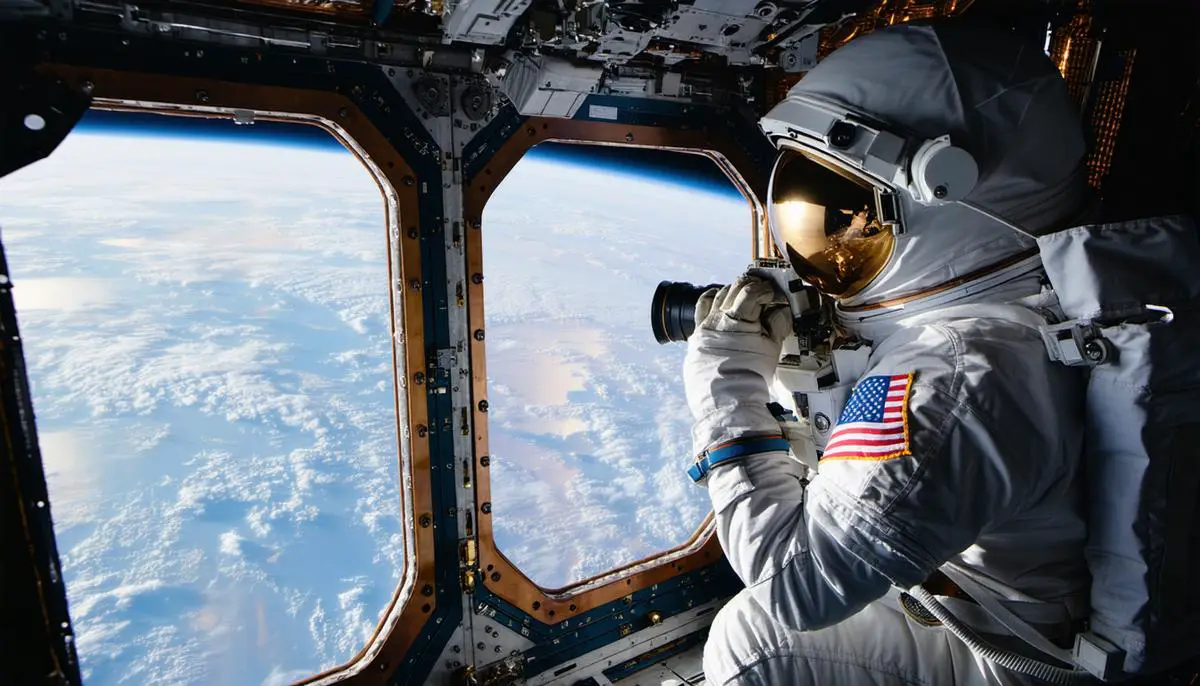
Addressing mental health challenges in space is crucial for the success of future missions. As space agencies prepare for longer and more distant expeditions, the lessons learned and technologies developed will play a key role in ensuring astronauts can perform effectively while maintaining psychological well-being.
- Kanas N. Psychological, psychiatric, and interpersonal aspects of long-duration space missions. J Spacecraft Rockets. 1990;27(5):457-463.
- Stuster J. Bold Endeavors: Lessons from Polar and Space Exploration. Naval Institute Press; 1996.
- Basner M, Dinges DF, Mollicone D, et al. Mars 520-d mission simulation reveals protracted crew hypokinesis and alterations of sleep duration and timing. Proc Natl Acad Sci USA. 2013;110(7):2635-2640.
- Kramer LA, Hasan KM, Stenger MB, et al. Intracranial effects of microgravity: A prospective longitudinal MRI study. Radiology. 2020;295(3):640-648.
- Garrett-Bakelman FE, Darshi M, Green SJ, et al. The NASA Twins Study: A multidimensional analysis of a year-long human spaceflight. Science. 2019;364(6436):eaau8650.
![]()
